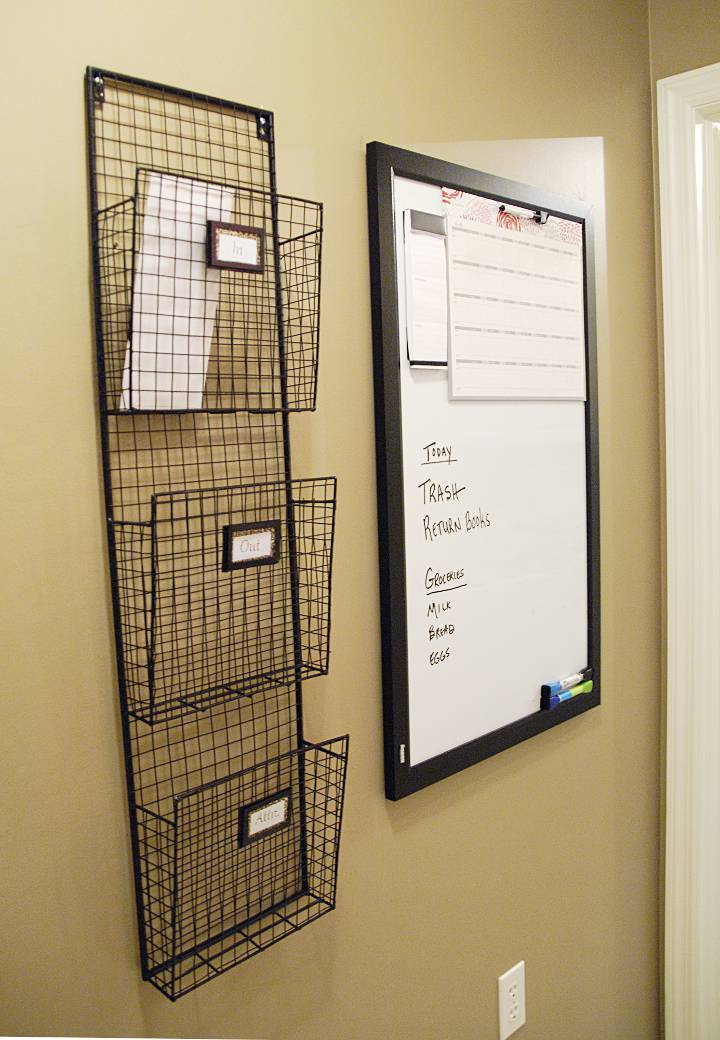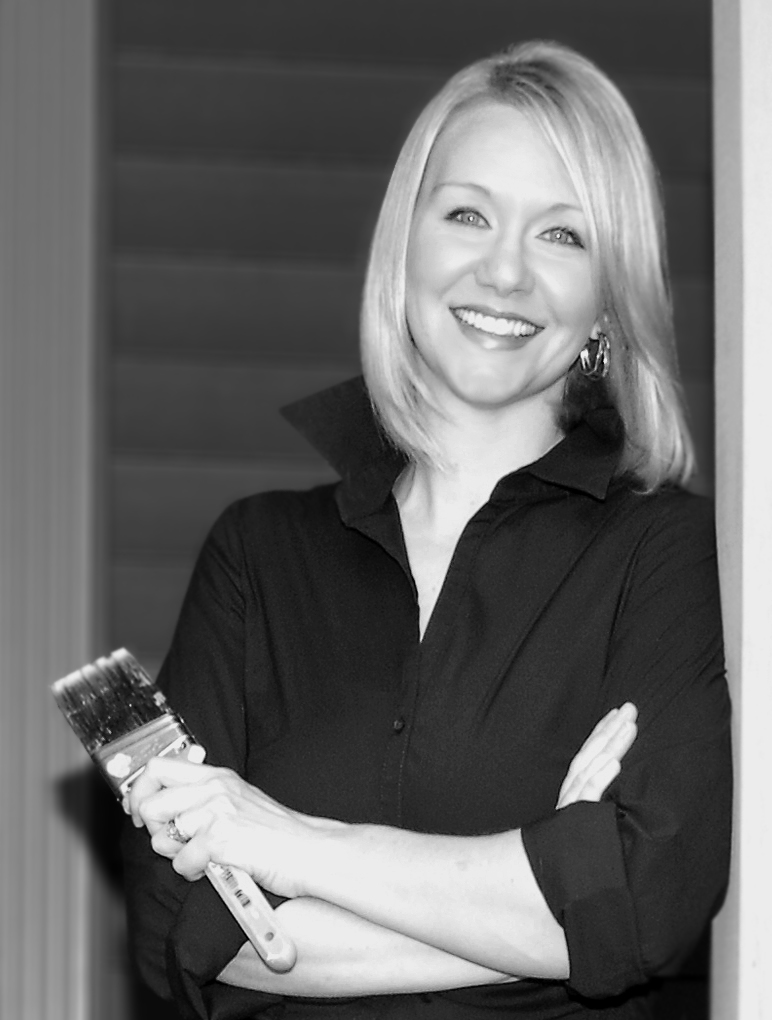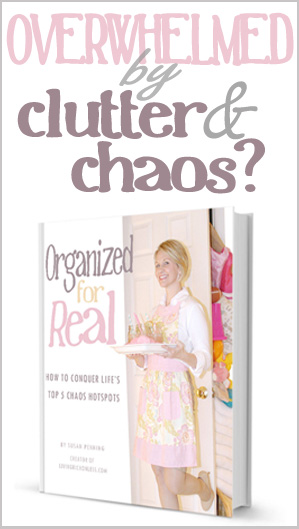Tips for organizing (and paying) bills
Recently, one of my readers, Shannon, asked for my help. She is having trouble organizing her bills and, as a result, some aren’t getting paid on time. So I figured I would share with Shannon (and all of you) my strategy for staying on top of the paperwork that floods into my home. Plus I also want to talk a bit about our family’s financial philosophy and history.
The system I use for keeping control of our incoming mail is pretty simple. I have a mail center that I use to sort everything as soon as it comes in the door.
 If it’s junk mail, it goes straight into the recycle bin or shredder. If it’s something I want to look at later, but is not vitally important, such as a magazine or catalog, it goes in the “In” slot temporarily.
If it’s junk mail, it goes straight into the recycle bin or shredder. If it’s something I want to look at later, but is not vitally important, such as a magazine or catalog, it goes in the “In” slot temporarily.
 If it is something that needs attention (such as a bill or important document), it goes in the “Attn” slot.
If it is something that needs attention (such as a bill or important document), it goes in the “Attn” slot.
AT LEAST ONCE A WEEK, I take time to go through and attend to all the items in the “Attn” slot. This prevents me from paying bills late, forgetting to turn in important paperwork on time, etc.
The last slot, “Out,” is for items that need mailed or sent to work with the hubs or to school with Tiny.
 The magnetic white board beside my mail slot serves as a great tool for displaying my monthly calendar, writing down urgent tasks our family needs to complete, and hanging reminders about important upcoming events.
The magnetic white board beside my mail slot serves as a great tool for displaying my monthly calendar, writing down urgent tasks our family needs to complete, and hanging reminders about important upcoming events.
Sorting the mail right away and taking care of my “Attn” items weekly is the cornerstone of my simple system. My day planner is another vital tool that helps keeps my life in order.
With regard to incoming bills, our family has set up most of our bills to be paid automatically out of our checking account. This dramatically cuts down on the amount of bills we get in the mail that need attention.
Money management
Of course, my system of organizing a mail center and setting up automatic bill payments works well if you’re not in a “more month at the end of the money” situation.
What if you have to constantly stagger your bill payments to avoid overdrawing your accounts? What if you’re “robbing Peter to pay Paul” and using credit cards or money designated for other needs just to get through the week?
It’s no secret that juggling bills and worrying about whether or not you’ll have enough to make it until payday is a frustrating, anxiety-inducing way to live, to say the least.
Unfortunately, I don’t have any magic beans or get-out-of-debt-free cards to give away here on the ol’ blog. But I can share with you the financial strategy that has worked for our family and how we’ve managed to become completely debt free (except the house), be generous to others and put a good chunk into savings and retirement accounts.
Our story
When the hubster and I married 12 years ago, we were broke as a joke, carrying (together) about $35,000 in school loans, about $6,000 in credit card debt, a $6,000 car loan and nothing in savings. Of course, we could have accrued a ton more in school loans, but we applied for scholarships and worked odd jobs to keep the amount down.
At the time we married, I think we were making a little over $20,000 a year in income. Any extra money we had left over after the tuna and Ramen noodles went to pay down debt.
To save money, I hand-sewed curtains from scrap fabric for our $275/month apartment and we either thrifted or bought on extreme clearance EVERYTHING we needed for our new life together. No big-screen TVs, expensive gaming systems or designer sheets and towels for us.
Then we prayed hard. We prayed that God would help us pay off our debt as quickly as possible and we prayed that we would be smart with our money so we could be more generous. And we tithed, meaning we gave a tenth of all our earnings back to God (mostly in the form of church offerings).
Slowly, the debt whittled down and the earnings increased. Within two years of getting married, God called us both into the Air Force full-time and we were able to take advantage of the military’s college loan repayment program, which allowed us to pay off $15,000 of loans in one fell swoop. Nice! Then we took advantage of the military’s tuition assistance program to get our master’s degrees without taking out a single loan. Double nice! This put us on the right track to exponentially increase our future earning potential.
When we left the military, our debt consisted of one small car loan. Later, we attended Dave Ramsey’s Financial Peace University, which solidified our “live debt free” philosophy and motivated us even more to get and stay out of debt. We finished paying off our vehicles and are now left with only the mortgage on our home, which we are working to pay down, too.
Our financial philosophy consists of three major pillars (in order of importance):
1. Give
No matter how much or how little we make, we give at least a tenth back to God, the giver of all things!
Proverbs 11:24-25
There is one who scatters, and yet increases all the more, and there is one who withholds what is justly due, and yet it results only in want. The generous man will be prosperous, and he who waters will himself be watered.Malachi 3:10
“Bring the whole tithe into the storehouse, so that there may be food in My house, and test Me now in this,” says the Lord of hosts, “if I will not open for you the windows of heaven and pour out for you a blessing until it overflows.Luke 6:38
Give, and it will be given to you. They will pour into your lap a good measure, pressed down, shaken together, and running over. For by your standard of measure it will be measured to you in return.
2. Save
We followed Dave’s plan and have created an emergency fund and we have at least three-six months of living expenses in our savings account. And we actively fund retirement accounts. Having this little cushion really helps us sleep well at night knowing we can handle financial emergencies that may arise. We also carry health and term life insurance.
3. Spend
Whatever money is left over after the giving and the saving we use to fund our lives.
I realize our story is unique and we have certainly had our share of help along the way (from God and the military). But the honest-to-goodness truth is that we have had to make some serious sacrifices to get where we are today. There are no short-cuts, no get-rich-quick methods. But it has been worth the journey. The peace and freedom of having your finances under control is priceless!
Below are some great resources to help you on your journey to financial freedom:
Where are you on the road to financial peace?






Before Jeff’s check was direct deposited, we lived on what I referred to as “the budget system”. Every bill we had was rounded off and divided by 52 for the number of weeks in the year. We had a binder with several slots and each was marked for electric, car payment, car insurance, life insurance, taxes, etc. and the amount of money to go into each slot weekly since Jeff was paid weekly. We had the same amount coming out of the paycheck each week. As soon as the bill came, the money was taken from the binder and placed into the bill envelope to be deposited on Friday. For example, our car insurance was $544.00 per year, each week we put $11.00 into the slot. When the car insurance came due, the money was there…no big draw on the paycheck since the same amount went into the slot each week. For bills such as electric, phone, etc. we estimated the yearly amount by taking the monthly bill x 12 months, then dividing by 52. It is amazing how well you can keep your bills paid and know exactly what you have each week to spend because it is the same amount. Now that Jeff’s check is direct deposited, we filled out papers at the bank to have x amount of money deposited in two separate saving accounts and money in a Christmas account. Part of the money in the Christmas account is used to pay our big taxes and the rest for Christmas…so no big expenses. As for mail, I open it directly over the trash can. I read this tip a long time ago and have done it ever since. It works great for keeping out the clutter.
Great info, Jo. It sounds like you’ve got a great, organized system working for you.
I’ve stumbled upon this blog and I’m really glad I have. This post is such great advice and for me a reminder/encouragement to get it together. I took Dave’s class a couple of years ago and got off track. I will be visiting your blog from now on. Blessings.
Dina, I’m so glad you stopped by! I’m happy the information was helpful to you.